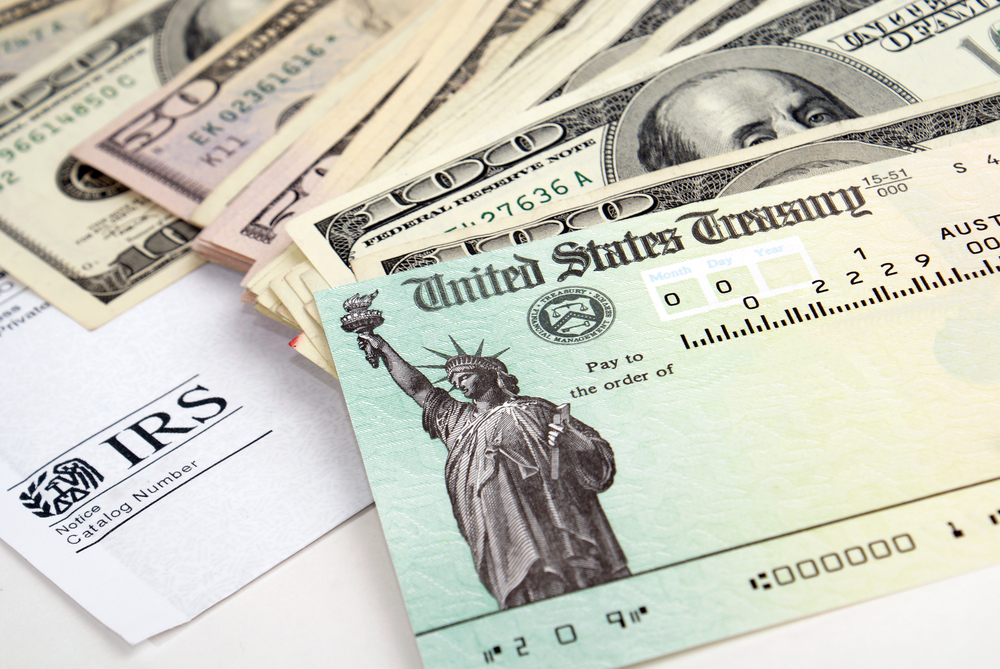The IRS on July 8 released a fact sheet regarding misleading tax advice that has proliferated on TikTok and other social media platforms, specifically on scams centered around the Fuel Tax Credit, the Sick and Family Leave Credit, household employment taxes, and overstated withholding.
The fact sheet includes nine frequently asked questions (FAQs) and answers about the two tax credits and what taxpayers should do if they’ve fallen for one of the scams, among other things.
The IRS first notified the public last April about seeing “wildly inaccurate tax advice” on social media in which scammers encouraged people to submit inaccurate information in hopes of getting a refund. The agency also released an alert in May warning taxpayers that they could face steep financial penalties, potential follow-up audits, or criminal action for improper refund claims.
“The IRS warns taxpayers not to fall for these scams centered around the Fuel Tax Credit, the Sick and Family Leave Credit, household employment taxes and overstated withholding,” the agency says in the fact sheet. “The IRS has seen thousands of dubious claims come in where it appears taxpayers are claiming credits for which they are not eligible, leading to refunds being delayed and the need for taxpayers to show they have legitimate documentation to support these claims. These FAQs are being issued to provide general information to taxpayers and tax professionals as expeditiously as possible.”
The IRS provided the following reminders to taxpayers so they don’t get bamboozled:
- Social media can connect people and information from all over the globe, but unfortunately, sometimes people provide bad tax advice that can lure good taxpayers into trouble.
- Be wary of trusting internet advice, whether it’s a fraudulent tactic promoted by scammers or a deliberately false tax-related scheme trending across popular social media platforms.
- The IRS is aware of various filing season hashtags and social media topics related to this fraudulent information. These generally involve people trying to use legitimate tax forms for the wrong reason.
“Some taxpayers may receive a letter 5747C and/or 4883C/5071C with instructions to verify their identity and tax return information so we can continue processing their tax return. Even after this verification, questionable refunds will continue to be held until credit eligibility is verified,” the IRS says.
Examples of frequently abused claims include:
- Fuel Tax Credit (Form 4136).
- Sick and Family Leave Credit for Self Employed Individuals (Form 7202).
- Overstated withholding.
- Schedule H, Household Employment Taxes including Qualified Sick Leave Wages.
One of the questions is: What should you do if you receive one of these letters from the IRS, identifying your tax return as requiring authentication and/or being potentially frivolous?
The IRS response:
- 3176C Frivolous correspondence response.
- 5747C Potential identity theft during original processing – TAC.
- 5071C Potential identity theft during original processing with online option.
- 4883C Potential identity theft during original processing.
“Taxpayers in receipt of a 3176C letter should follow the directions on the correspondence. Taxpayers receiving these letters may have previously received a 5747C letter, 5071C letter or 4883C letter. In this instance, disregard the 5747C, 5071C or 4883C. Do not visit a Taxpayer Assistance Center (TAC) or try to authenticate online or over the phone. Instead, follow the directions in the 3176C letter,” the agency says.
You can find the fact sheet and more FAQs here.
Thanks for reading CPA Practice Advisor!
Subscribe Already registered? Log In
Need more information? Read the FAQs




